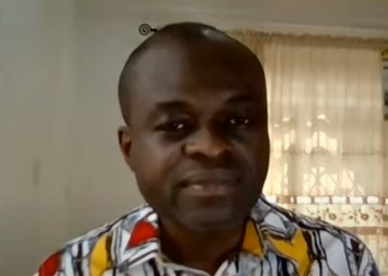
Audio By Carbonatix
Lawyer, Martin Kpebu, has called for the automatic implementation of Article 286 (4) of the 1992 Constitution as a more efficient and effective means of checking corruption in the country.
According to him, unlike the current anti-graft laws, which have done little to curb corruption in Ghana, the activation of Article 286 (4) in a manner that it is activated automatically at the end of a public officer’s term of office, would be most beneficial to the anti-graft campaign.
“That is the heart of the matter that is the one we need to implement, unexplained wealth. Somebody comes into office and then overnight he’s building properties left, right, centre, by the time he’s leaving he’s amassed so much wealth.
“That is what we need to implement; that there will be a law to implement the 286, Clause 4 that, at the time you’re leaving office, you appear before CHRAJ automatically and explain all your wealth,” he said.
Relying on historical precedents, Martin Kpebu noted that the implementation of the law after the Nkrumah regime, saw Ministers and other public officials who had engaged in corrupt activities, being held accountable.
“And then we’re saying that in our history when the Jiagge Commission sat, and history shows that people used to send evidence to the Commission in the night, they’ll go and push it under the doors, so the next morning by the time the commissioners and staff came, they would find envelopes that contain evidence that Mr. X upon becoming Minister built this house, bought this fresh car Bugatti, Lamborghini, you name them, and so investigate,” he said.
He, however, noted that for the law on unexplained wealth to be very effective, the government must find a way to make Ghanaians comfortable with leaking information to the regulatory body in charge of investigating such cases.
“You remember that the last time CDD, the last time I read something about this corruption fight, they said at least 8 out of 10 Ghanaians are scared of reporting corruption and other malfeasances against public officers.
“Most of our population are scared of reporting, so the only method or the more viable way of fighting corruption is that have a standing committee then people can send evidence surreptitiously,” he said.
Latest Stories
-
Blind refugee found dead in New York after being released by immigration authorities
52 seconds -
Stanbic Bank Ghana leads $205m financing for Engineers & Planners
8 minutes -
Mobile Money Ltd’s Paapa Osei recognised in Legal 500 GC Powerlist: Ghana 2026
27 minutes -
Flights in and out of Middle East cancelled and diverted after Iran strikes
46 minutes -
Dr Maxwell Boakye to build 50-bed children’s ward at Samartex Hospital in honour of late mother
56 minutes -
One killed and 11 injured at Dubai and Abu Dhabi airports as Iran strikes region
1 hour -
Former MCE, 8 others remain in custody over alleged land fraud in Kumasi
1 hour -
Black Queens players stranded in UAE over Israel-Iran conflict
2 hours -
James Owusu declares bid for NPP–USA chairman, pledges renewal and unity
2 hours -
Trump threatens strong force if Iran continues to retaliate
2 hours -
Lekzy DeComic gears up for Easter comedy special ‘A Fool in April’
4 hours -
Iran declares 40 days of national mourning after Ayatollah Ali Khamenei’s death
5 hours -
Family of Maamobi shooting victim makes desperate plea for Presidential intervention
6 hours -
Middle East turmoil threatens to derail Ghana’s single-digit gains
6 hours -
Free-scoring Semenyo takes burden off Haaland
7 hours

